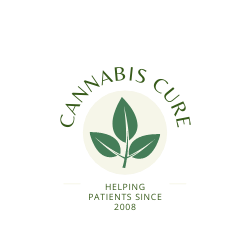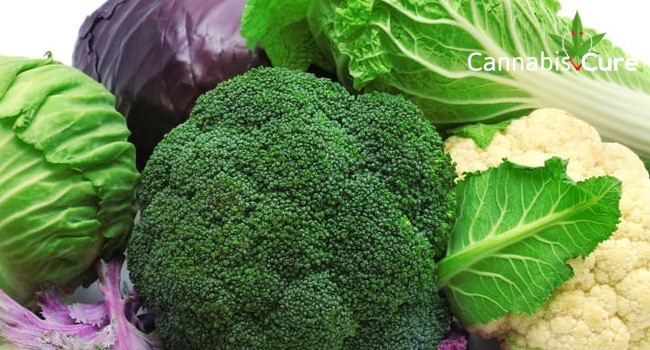Cancer Fighting Foods
Research has discovered that more than 2,500 cancer cases diagnosed weekly in the UK alone are preventable by making simple lifestyle changes and the addition of cancer-fighting foods to our diet.
As experts say the disease is not simply genetic, almost four in ten of all cancers could be avoided by switching to a healthier diet, eating more cancer-fighting foods, doing more exercise and giving up smoking. Of the 360,000 new cases diagnosed in 2015, about 135,500 could have been prevented, according to Cancer Research UK.
The Top Cancer Fighting Foods To Include In Your Diet
The food we eat can affect our risk of developing cancer, both directly and by helping us keep a healthy weight.
Keeping a healthy weight is the second-best thing you can do to cut the risk of cancer, after not smoking. Some of the same foods that can affect your body weight can also directly affect cancer risk.
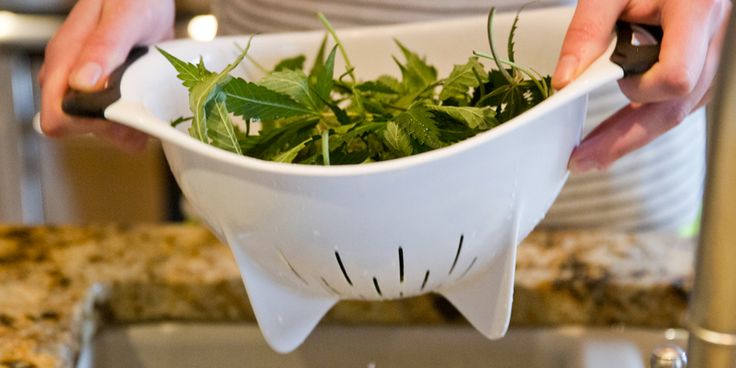
Washing fresh cannabis leaves before juicing
A great start to changing your diet to include healthy cancer-fighting foods is to consider starting to juice cannabis leaves and buds daily. This will require access to a healthy crop of cannabis plants but as the laws change it may soon be possible to have your medical plants growing alongside your vegetables in the garden. The leaves can be stored by freezing.
Try To Make These Foods A Part Of Your New Diet Regime
High fibre foods like wholegrain foods, pulses, fruits and vegetables are believed to reduce the risk of cancer. At present oncologists recommend avoiding fats, meats and sugars, however, see ketogenic diet (below),
Some foods, such as processed and red meat and salt-preserved foods, are said to increase the risk of developing cancer. Whilst others, such as fruits, vegetables and foods high in fibre, are believed to reduce the risk of cancer.
The Top Cancer Fighting Foods Recommended By Oncologists:
Cancer-fighting foods include:
- Leafy Green Vegetables
- Cruciferous Vegetables
- Legumes: (Beans, peas, lentils, pulses, peanuts, chickpeas, etc.)
- Berries (Blueberries particularly)
- Bright Orange Fruits and Vegetables (Citrus Fruits, Squash,carrots Sweet Potatoes, etc.)
- Fresh Herbs and Spices (chilis,turmeric, ginger)
- Fresh Fish (Not farmed, however, see salmon link below)
- Nuts and Seeds
- First Press Extra Virgin Olive Oil (Do not use to fry foods)
- Garlic
- Fresh fruits
Top Cancer Causing Foods As Defined By Oncolgists
Cancer-causing foods include:
- Hydrogenated Oils (Most vegetable oils contain trans fats)
- French Fries/Potato Chips
- Microwave Popcorn (Commonly listed but not strictly true)
- Processed Meats
- Red Meat
- Farmed Salmon (Commonly listed but not strictly true)
- Refined Sugar/Soda
- Charred Meats (Over-cooked barbecue or grill)
- Artificial Sweeteners
- Excess Alcohol (Moderate use of red wine has been recommended but not advised)
After following over 519,978 participants living in 10 European nations, results showed that those who most closely followed a style of eating similar to the Mediterranean diet were the most protected.
High intake of cancer-fighting foods like vegetables, fruit, fish, calcium-rich foods and fibre was associated with a decreased risk of lung and breast cancers. Red and processed meat intake, alcohol intake, unhealthy body mass index (BMI), and abdominal obesity were associated with an increased risk. Being physically active and obtaining enough vitamin D also helped lower cancer susceptibility.
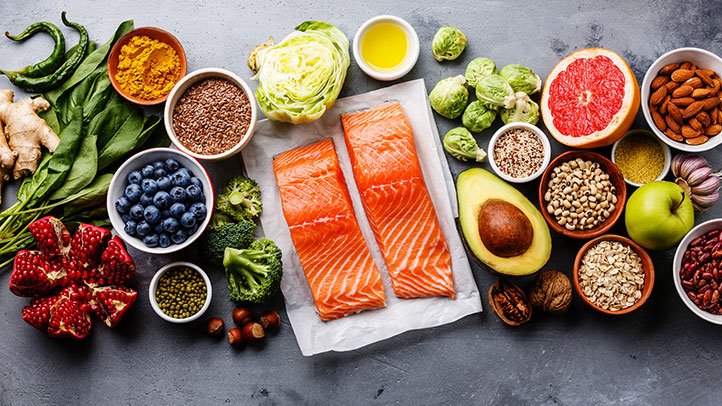
The Mediterranean Diet
- Eat: Vegetables, fruits, nuts, seeds, legumes, potatoes, whole grains, breads, herbs, spices, fish, seafood and extra virgin olive oil.
- Eat in Moderation: Poultry, eggs, cheese and yogurt.
- Eat Only Rarely: Red meat.
- Don’t Eat: Sugar-sweetened beverages, added sugars, processed meat, refined grains, refined oils and other highly processed foods.
Exactly which foods belong in the Mediterranean diet is controversial, partly because there is such variety between different countries.
The diet prescribed in the studies is high in plant foods, and relatively low in animal foods. However, eating fish and seafood is recommended at least twice a week.
Research indicates that people with less healthy diets are more likely to develop cancer. Many studies have been conducted looking at the association between diet and cancer, and experts agree that the food we eat can directly affect our risk of cancer.
Foods, such as processed and red meat and also salt-preserved foods, have been shown in some studies to increase the risk of developing cancer. Cancer-fighting foods such as fruits, vegetables and foods high in fibre are thought to reduce the risk of cancer.
A study from 1996, published in the journal Cancer, Epidemiology, Biomarkers & Prevention reviewed 94 studies and found that consumption of these vegetables indicated a decreased risk of both primary and secondary cancers.70% of cabbage studies showed a decrease in cancer risk when eaten regularly.
Other notables include cauliflower, broccoli, and Brussels sprouts studies that reported 67%, 56% and 29% relationship with decreased cancer risk, respectively.
Eating a healthy, balanced diet also helps maintain healthy body weight. Obesity is the second biggest preventable cause of cancer after smoking.
Struggling To Eat Your Five A Day Of Your Cancer Fighting Foods?
Five portions of fruit and vegetables have been the official advice for years. Now experts recommend ten!

Now experts are recommending ten portions of fruit and vegetables are preferable to ward off cancer and disease.
Researchers from Imperial College London found that ten 80g portions of fruit and veg can cut the risk of cancer by 13% and heart disease by 24% and could prevent 7,200 cancer deaths and almost 14,000 from strokes every year.
Dr Dagfinn Aune stated: “Fruit and vegetables have been shown to reduce cholesterol levels, blood pressure, and to boost the health of our blood vessels and immune system.
This may be due to the complex network of nutrients they hold. For instance, they contain many antioxidants, which may reduce DNA damage, and lead to a reduction in cancer risk.
I think people should try to do better than five if they can. There do seem to benefit from a higher intake.”
The researchers analysed data from 95 studies on fruit and vegetable intake, finding that ten servings cut the risk of dying prematurely by almost a third. The United Kingdom NHS state that fruit and vegetables can be juiced, canned or frozen.
Cancer Linked To Poor Diet And Lifestyle
Poor lifestyle and diet which does not include cancer-fighting foods have been linked to the following cancers:
- Bowel cancer. Strong evidence shows that eating lots of processed and red meat can increase the risk of bowel cancer, and possibly stomach and pancreatic cancer.
- Mouth cancer. Strong scientific evidence indicates eating fruits and vegetables has been linked to a lower incidence of mouth, throat, larynx and lung cancer.
- Upper throat cancer. See above.
- Larynx cancer. See above.
- Lung cancer. See above.
- Stomach cancer. According to one study, half an onion a day could reduce the risk of stomach and bowel cancer by 50%. In addition to yellow and red onions, good dietary sources of quercetin include apples, lovage, capers, broccoli, cherries, citrus fruits, red grapes, tea, and many berries, including lingonberries, raspberries, and cranberries.

Fibre In A Healthy Cancer Fighting Food Diet
Many studies show that cancer-fighting foods high in fibre reduce the risk of bowel cancer. However, this is the recognised dietary advice and is disputed by some oncologists who recommend the ketogenic diet protocol.
Foods high in fibre include fruits, vegetables, pulses and whole-grain foods, but the strongest evidence is for whole grains.
Fibre may also help gut bacteria produce helpful chemicals that change the conditions in the bowel. Fibre can lower blood sugar, cut cholesterol, and may even prevent colon cancer and help you avoid haemorrhoids. If it were a drug, the world would be clamouring for it.
Women should get about 25 grams a day and men at least 35 to 40, but the average person gets just 15 grams a day. Eating fibre-rich whole food is the best way to increase your fibre intake.
Salt Intake In Healthy Diet
Salt can increase stomach cancer risk by damaging the stomach lining, which causes inflammation, or by making the stomach lining more sensitive to cancer-causing chemicals. Salt-preserved foods include pickled vegetables, salted fish and cured meats. Salt could also interact with a stomach bug called Helicobacter pylori that is linked to both stomach ulcers and stomach cancer.
The strongest evidence is for salt-preserved foods and mainly those commonly eaten in East Asia. The evidence linking total added salt in the diet and stomach cancer is less conclusive.
Red Meat In A Cancer Fighting Foods Diet
Red meat (including processed red meat) contains a naturally occurring red pigment called haem. Scientists think there are a number of ways in which processed and red meat can increase the risk of cancer, they involve the chemicals found in these meats.
Some chemicals are a natural part of the meat, and others are made when the meat is preserved or cooked at high temperatures.
Haem it is thought could irritate or damage cells in the body or fuel the production of harmful chemicals by bacteria, which could lead to a higher risk of cancer.
Chemicals called nitrates are often used to preserve processed meat. Nitrites can be converted into cancer-causing chemicals called N-nitroso compounds (NOCs) within the body.
Cooking meat at high temperatures such as grilling or barbecuing can produce cancer-causing chemicals called heterocyclic amines (HCAs) and polycyclic amines (PCAs).
However, others disagree and there are many people now turning to low carbohydrate, high fat and protein diets that focus primarily on eating meat. The Ketogenic, Palaeolithic, Carnivore and Atkins diets are good examples.
Can A Ketogenic Diet Help Fight Cancer?
Interestingly, there is some early research suggesting that a very low-carb ketogenic diet may help in fighting cancer.
The ketogenic diet is a very low-carb, high-fat diet that shares many similarities with Atkins and other low-carb diets. It involves drastically reducing your intake of carbs and replacing them with fat. This change leads to the metabolic state called ketosis. After several days, fat becomes your body’s primary energy source.
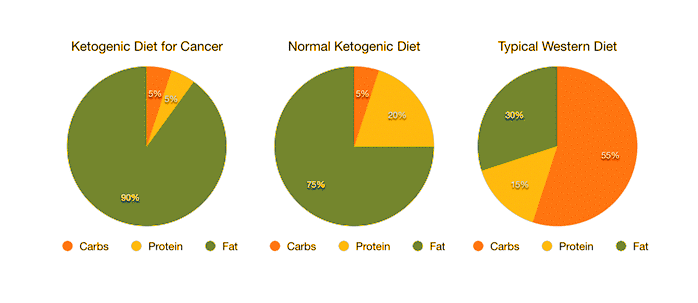
This causes a significant increase in the levels of compounds called ketones in your blood. In general, a ketogenic diet used for weight loss is about 60-75% of calories as fat, with 15-30% of calories from protein and 5-10% of calories from carbs.
However, when a ketogenic diet is being used therapeutically to treat cancer, the fat content may be significantly higher (up to 90% of calories) and the protein content lower.
The Role Of Blood Sugar And Cancer Fighting Foods
Many cancer therapies are designed to target the biological differences between cancer cells and normal cells. However, nearly all cancer cells share one common trait: they feed off carbs or blood sugar in order to grow and multiply.
When you eat a ketogenic diet, some of the standard metabolic processes are altered and your blood sugar levels go way down. Basically, this is claimed to “starve” the cancer cells of fuel.
As in all living cells, the long-term effect of this “starvation” may be that the cancer cells will grow more slowly, decrease in size or possibly even die. It seems possible that a ketogenic diet could help reduce the progression of cancer because it causes a rapid decrease in blood sugar levels.
There are several other mechanisms that may explain how a ketogenic diet can aid in cancer treatment. Firstly, eliminating carbs can quickly lower calorie intake, reducing the energy available to the cells in your body.
In turn, this may slow down tumour growth and cancer’s progression. In addition, ketogenic diets can provide other benefits:
Lowered Insulin
Insulin is an anabolic hormone. That means when it’s present, it makes cells grow, including cancerous ones. Therefore lower insulin may slow tumour growth.
Increased Ketones
Cancer cells cannot use ketones as fuel. Research shows that ketones may reduce tumour size and growth. In animals, the ketogenic diet seems to be a promising alternative treatment for cancer. Despite the promising evidence in animals, research in humans is only just emerging. At present, the limited research does seem to show that a ketogenic diet may reduce tumour size and rate of progression in certain cancers.
Brain Cancer
One of the few documented case studies was performed on a 65-year-old woman with brain cancer. Following surgery, she received a ketogenic diet. During this time, the tumour’s progression slowed. However, 10 weeks after returning to a normal diet, she experienced a significant increase in tumour growth.
Similar case reports examined the reactions to a ketogenic diet in two girls who were undergoing treatment for advanced brain cancer. Researchers found that glucose uptake was decreased in the tumours of both patients.
One of the patients reported improved quality of life and remained on the diet for 12 months. During that time the disease showed no further progression.
Other patients struggled to maintain the diet as many people find the daily low carbohydrate content of meals leaves them craving glucose in the form of sugars and carbohydrates. Some patients reported a lack of energy and fatigue whilst on the diet.
Oxygen Therapy
If you have a health condition that causes low levels of oxygen in your blood, you may feel breathless and tired, particularly after walking or coughing. Fluid may also build up around your ankles.
Breathing air with oxygen increases the amount of oxygen in your blood. This makes it easier to carry out activities that might otherwise be difficult and helps reduce your symptoms.
Oxygen therapy also helps prevent damage to the heart and brain, which can be caused by low levels of oxygen in the blood. It can help people with a range of health conditions, such as:
chronic obstructive pulmonary disease (COPD), pulmonary fibrosis, heart failure, obesity-related hypoventilation, severe long-term asthma, pulmonary hypertension, conditions affecting the nerves and muscles or ribcage, cystic fibrosis
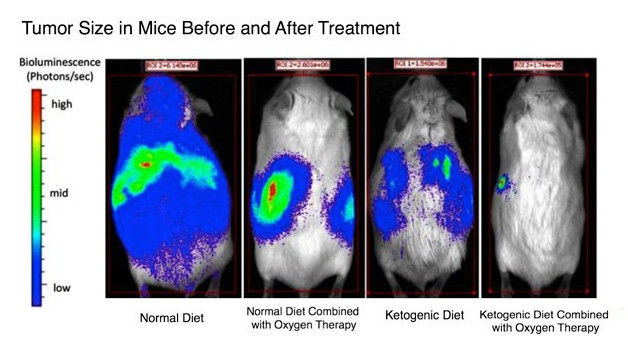
Other Cancers
One study monitored tumour growth in response to a high-carb versus a ketogenic diet in 27 patients with cancer of the digestive tract. Tumour growth increased by 32.2% in patients who received the high-carb diet but actually decreased by 24.3% in the patients on the ketogenic diet. However, the difference was not statistically significant.
In another study, three out of five patients on a ketogenic diet combined with radiation or chemotherapy experienced complete remission. Interestingly, the other two participants found the disease progressed after they stopped the ketogenic diet.
Ideal Weight Calculator
Being overweight or obese is clearly linked to an overall increased risk of cancer. According to research from the American Cancer Society, excess body weight is thought to be responsible for about 8% of all cancers in the United States, as well as about 7% of all cancer deaths.HeightIn centimetres, (1 foot is equal to 30.48 cm).SexMaleFemaleIdeal Weight (kg)Maybe now is the time to lose those extra few pounds and get back in shape!
Experts say it is further evidence that cancer is largely down to environmental factors and not simply caused by genes or ‘bad luck’. While smoking is still the biggest avoidable cause, accounting for three in every 20 cases, doctors say weight-related cancer is fast catching up.
What Types Of Cancer Are Caused By Obesity?
Breast (in women after the menopause), bowel, womb, oesophageal (food pipe), pancreatic, kidney, liver, upper stomach (gastric cardia), gallbladder, ovarian, thyroid, myeloma (a type of blood cancer), and meningioma (a type of brain tumour).
This includes 2 of the most common types of cancer – breast and bowel cancers – and 3 of the hardest to treat – pancreatic, oesophageal and gallbladder cancers.
Is There Any Evidence Linking Cannabis To Weight Loss?
One study conducted by researchers at the University of Nebraska College of Medicine in Omaha, NE, and published in 2013 by the American Journal of Medicine found that the use of marijuana (or cannabis) was associated with smaller waist circumference.

That study included 4,657 adult men and women who reported using marijuana currently or in the past, and it’s relevant since marijuana contains CBD.
However, Dr Patel said she has only seen weight management benefits in her CBD patients as a side effect while treating other conditions.
“I’ve treated patients with CBD oil who have had almost debilitating pain, excessive tiredness from insomnia and anxiety that caused things like nervous eating,” she said. “Once these symptoms are better managed, people are better able to take care of themselves, make healthier food choices, exercise more, and live a better quality of life.”
Dr Patel said animal studies have also shown an increase in metabolism linked to CBD consumption, but clinically, she hasn’t seen that in her practice.
Dr Verbora, who has been working in the medical cannabis space for four years, also referenced animal studies. In those studies, CBD has been shown to stimulate genes and proteins that enhance the breakdown and oxidation of fat, increase the number and activity of mitochondria (which increases the body’s ability to burn calories), and decrease fat cell generation.
To test the link between THC and weight loss, researchers at the University of Calgary examined obese mice and mice at a regular weight, both of which were given THC daily.
The researchers found that while THC did not have any effect on the size of the mice who were already at a regular weight, it did cause the obese mice to lose weight. The researchers hypothesized that this was because THC caused changes in the gut microbiome that helped regulate weight loss and digestion.

Other studies in Poland, Italy, Hungary, Canada and the UK have replicated these findings, leading some researchers to conclude that there is “a correlation between cannabis use and reduction in the BMI,” said Dr Sunil Aggarwal, a Washington-based physician and cannabis researcher.
“This association holds even after controlling for other variables,” such as age, gender, or why a person is smoking marijuana to begin with (so for instance, a cancer patient who uses marijuana as a method of pain relief).
“It is known … that cannabis causes a temporary increase in appetite,” which can indeed lead to weight gain, he said. Yet he conceded that “as to whether it actually causes weight gain in the long term, the available data is limited.”
Further reading
How and where to safely buy RSO medical cannabis oil online
Read more about the cancer treatments that RSO cannabis oil can provide alongside your diet change to cancer-fighting foods.
Support and advise
If you need advice or help with Medical Cannabis, please use the contact form provided. We try to answer all emails within 24 hours and are happy to help and advice on all aspects of medical cannabis treatments in complete confidence.
Disclaimer: Please note that whilst we consider ourselves subject matter experts regarding medical cannabis, we are not medical professionals. We are an information resource and there is still limited evidence that medical cannabis can cure all the illnesses we discuss here. We recommend you do as much research as possible, and where practical seek professional medical advice before proceeding with Medical Cannabis oil.
